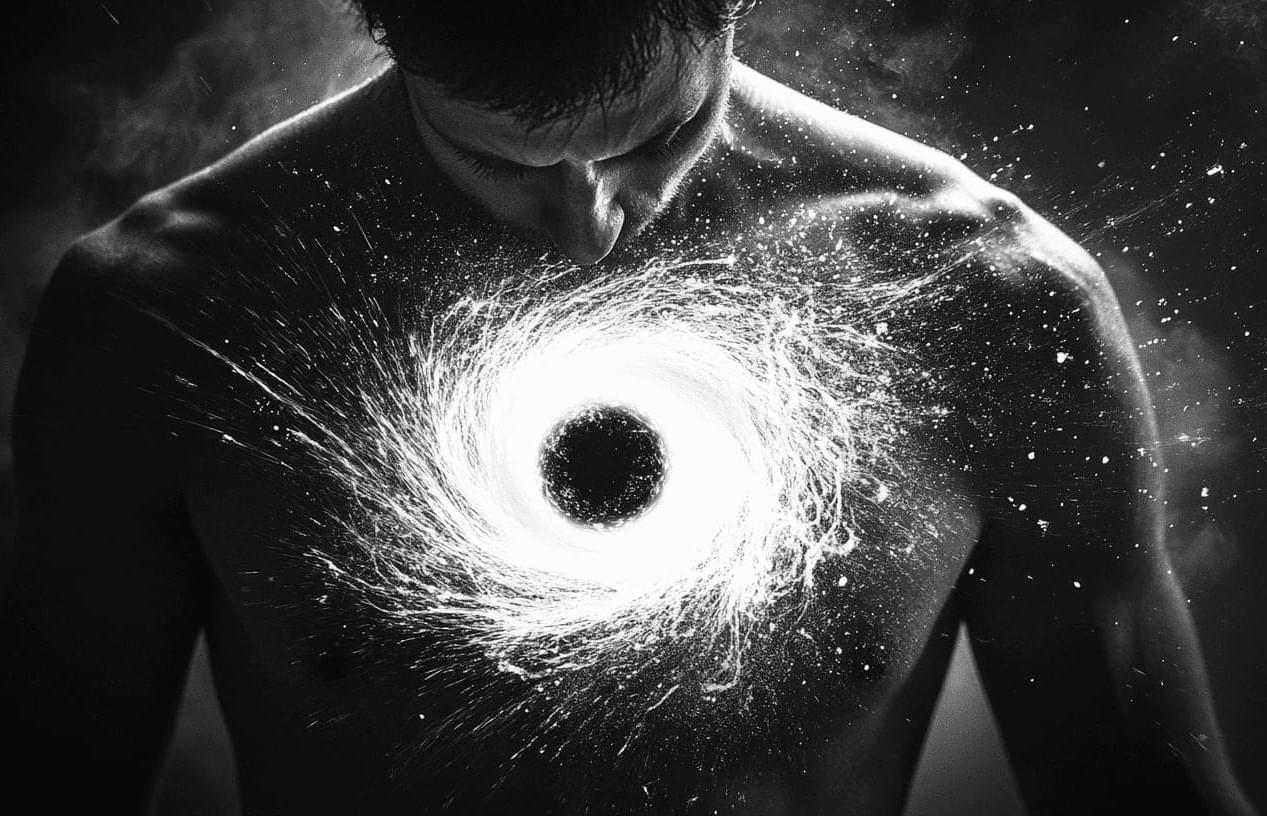Imagine a supervillain attacking you with his unique superpower of creating small black holes. An invisible force zips through your body at unimaginable speed. You feel no push, no heat, yet, deep inside your body, atoms momentarily shift in response to the gravitational pull of something tiny yet immensely dense — a primordial black hole (PBH).
What would this do to you? Would it cause minor, localized damage, or would it simply rip through your entire body? Physicist Robert J. Scherrer from Vanderbilt University investigated this very scenario. His study examines what happens when a tiny black hole, like the ones formed in the early universe, passes through the human body.
The question is, of course, theoretical; but it does start from a realistic scenario. Unlike regular black holes that form when massive stars collapse, primordial black holes are thought to have emerged in the first fractions of a second after the Big Bang. While “regular” black holes typically weigh millions or billions of times more than the Sun, these PBHs could be incredibly small, with masses ranging from tiny asteroids to planets.
